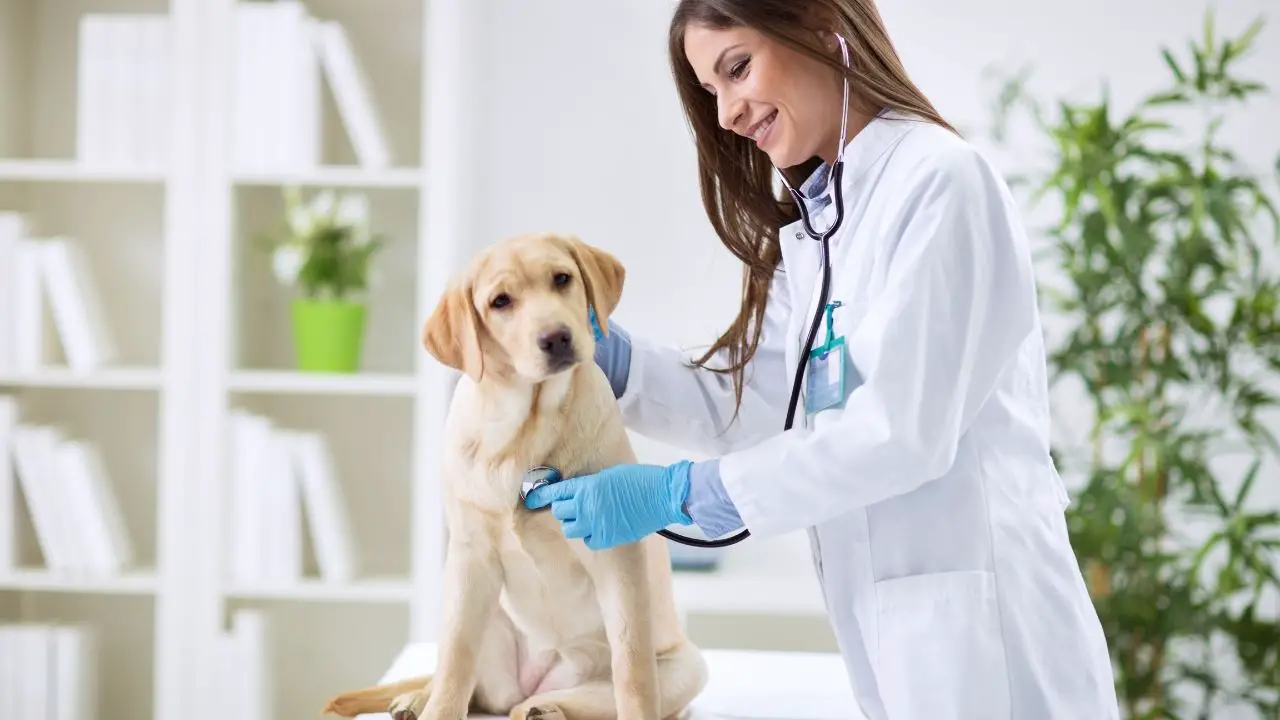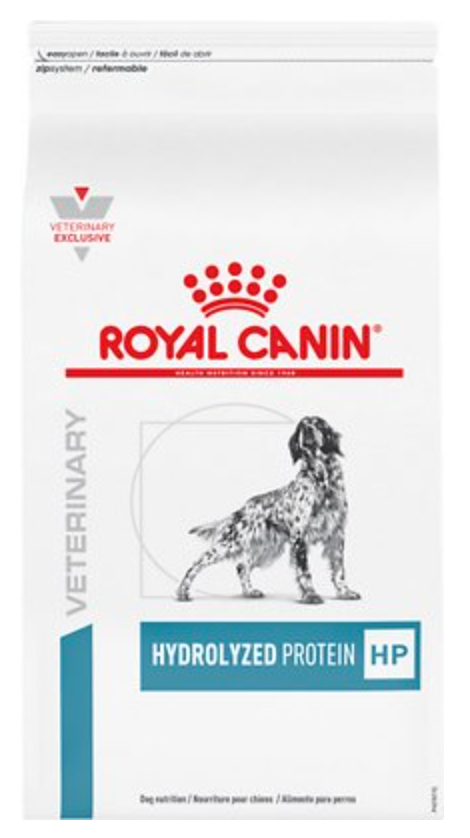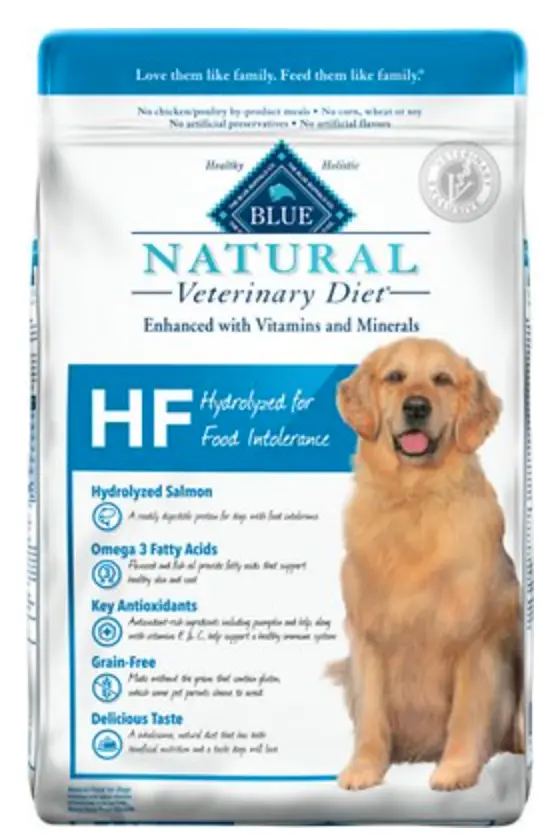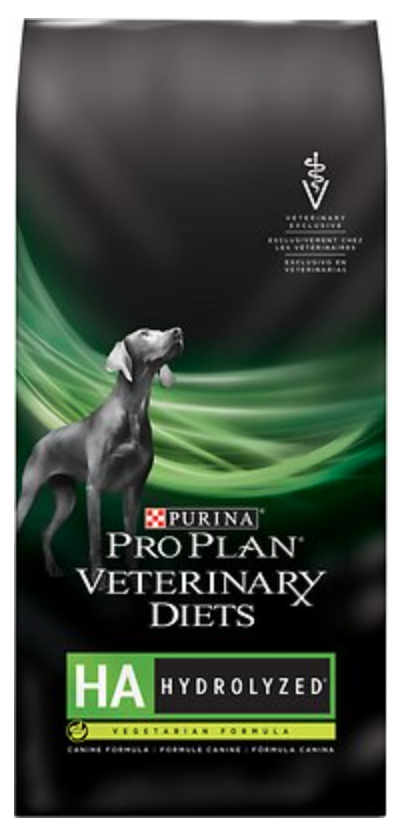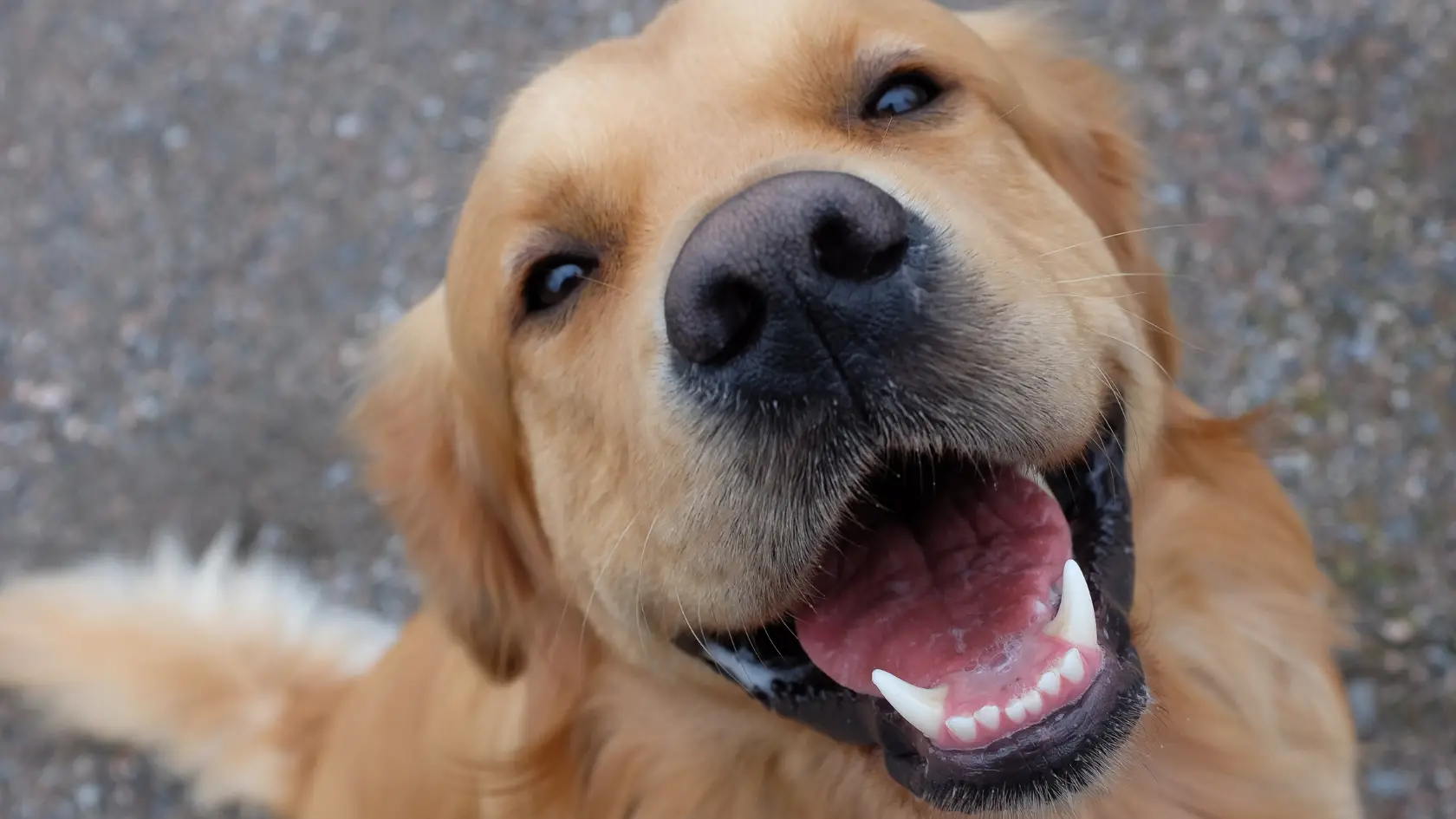Overview of colitis in dogs: Colitis is a fairly common type of inflammatory bowel disease in dogs that usually causes persistent diarrhea of an unknown origin that can be acute or chronic. Usually, the cause of colitis in dogs is unknown but most dogs affected are middle-aged. In the majority of cases, colitis in dogs is diagnosed by ruling out other causes of diarrhea.
Table of Contents
What is colitis in dogs?
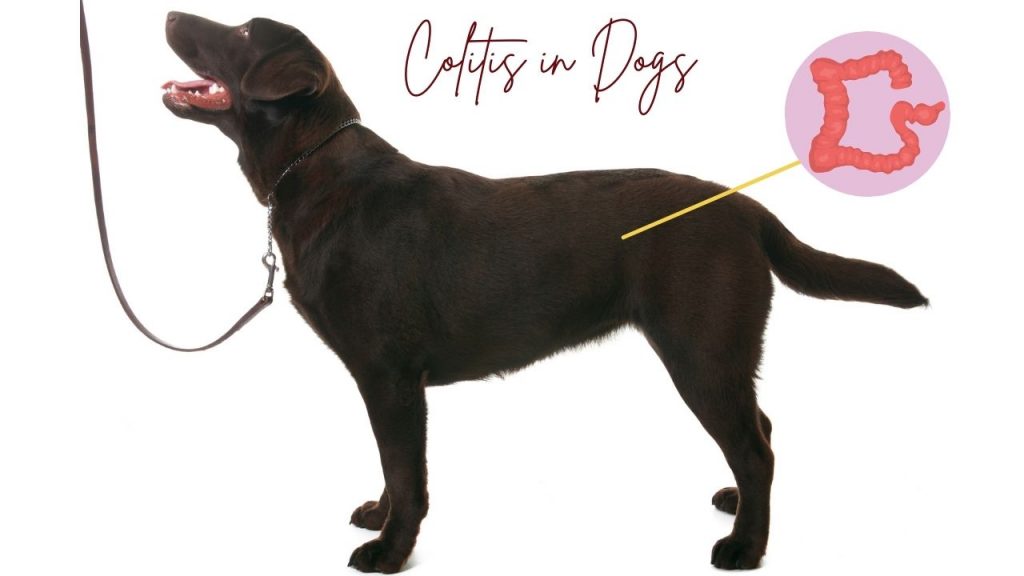
The large intestine (also called colon or large bowel) helps maintain fluid and electrolyte (salt) balance. In addition it absorbs nutrients and serves to store feces until it is excreted. Oftentimes, when the colon is damaged or infilitrated by bacteria, parasites or fungi that causes inflammation your dog will come down with diarrhea.
Colitis is a common disease in dogs and is characterized by persistent diarrhea. Any type of ‘itis’ means inflammation, therefore colitis is basically inflammation of the colon or large bowel. Colitis can be acute or chronic in dogs.
ACUTE COLITIS IN DOGS
In acute colitis, white blood cells (WBC’S) infiltrate the mucosal lining and can cause ulceration

CHRONIC
Chronic colitis is defined as having inflammation of the colon for 2 weeks or more.

Furthermore, colitis has been split into four types depending on the type of cell invading the intestinal mucosa
- lymphocytic-plasmacytic (most common)
- eosinophilic
- neutrophilic
- granulomatous (least common)
What can I do immediately if my dog has diarrhea?
If your dog has diarrhea this article includes six things you should do immediately to assist them. Start with not feeding for 12-24 hours to give your dog’s bowels a chance to rest and then feed a bland diet.

What are the clinical signs of colitis in dogs?
Symptoms of colitis in dogs may come and go, but will usually become more consistent and frequent as time passes. Remember that chronic colitis in dogs is just colitis that has been going on for at least two weeks. Your dog may present with one or several of the symptoms.
- Frequent and seemingly uncontrollable diarrhea
- Abdominal pain
- Pain and/or straining when defecating
- Diarrhea with mucus or blood
- While rare, if left untreated chronic colitis can lead to severe weight loss
- Vomiting may occur but this is rare
What are the causes of colitis in dogs?
In most cases the cause of colitis in dogs is unknown. While none have been factually established there are many factors that have been implemented in playing a part in causing the disease:
- infection: Bacterial, parasitic, and/or fungal have been suspected of causing colitis in dogs
- Traumatic injury may be a factor in developing colitis
- Allergies have often been postulated as being the cause of colitis in dogs
- Inheritance: some dogs seem to have a genetic predisposition to developing colitis other others
- Stress: many cases of actute colitis seem to be due to stress
- Autoimmune: Some research shows that colitis may be an autoimmune issue similar to Chrons in humans
What dogs are prone to developing colitis?
Most dogs are middle-aged and there is no sex predilection so it does not seem to occur more in males or females.
While rare, young boxers and french bulldogs do seem to be prone to developing granulomatous colitis which presents as thickened bowel wall that is usually partially obstructed due to inflammation when viewed on endoscopy.
How is colitis in dogs diagnosed?
Diagnosis is often done in steps, so if you have a dog that you suspect may have colitis prepare to bring your dog in several times for testing. Your vet may decide to do all or only some of the things listed below and not necessarily in the same order, but this is an example of the general order events may take place.
Step One: Your vet will need a history of clinical signs and any possibility of eating foreign foods, changes in diets, travel, etc. She or he will do a complete physical examination and will ask you many questions about your dos history (so if you are able to write down when. Your pup’s physical examination will probably include rectal palpation as well to check for any pain, abnormal masses, polyps, or blood.
Step Two: Your Vet will want to rule out common causes of diarrhea in your dog. This means they will most likely run tests like a fecal to find out if there is a bacterial, parasitic, or fungal infection
Step Three: Your vet will want to get some blood work and urinalysis to rule out other causes of the issue. Just FYI, these tests are usually normal with colitis unless the WBC’s that invade the mucosa are eosinophils in which case there might be a slight elevation of these on the blood test. At this time you will probably have placed your dog on another diet and/or tried some medications which are listed below.
Step Four: Your vet may need to see inside of your pets stomach, a less invasive method than endoscopy is an x-ray or ultrasound so this is often the next step. Not every vet clinic has an x-ray machine or ultrasound so keep in mind that they may have to refer you to another clinic or specialist.
Step Five: If necessary your veterinarian may want to do a colonoscopy to visually inspect the colon and even obtain a biopsy.
What information should I bring with me to the vet?
Here are some things you should have readily available for your vet:
- A log of the frequency and urgency of the diarrhea occurs
- Is there anything in the diarrhea (blood, excessive mucus, etc)
- Note if your pup seems to have pain
- What type of food is your dog on and is have there been any recent changes to your dog’s diet
- A fecal sample: you can scoop a small amount of your dog’s poop prior to going to the vet and place it in a baggie. The fresher the better so if you can get it within a couple of hours of heading to the vets this would be great.
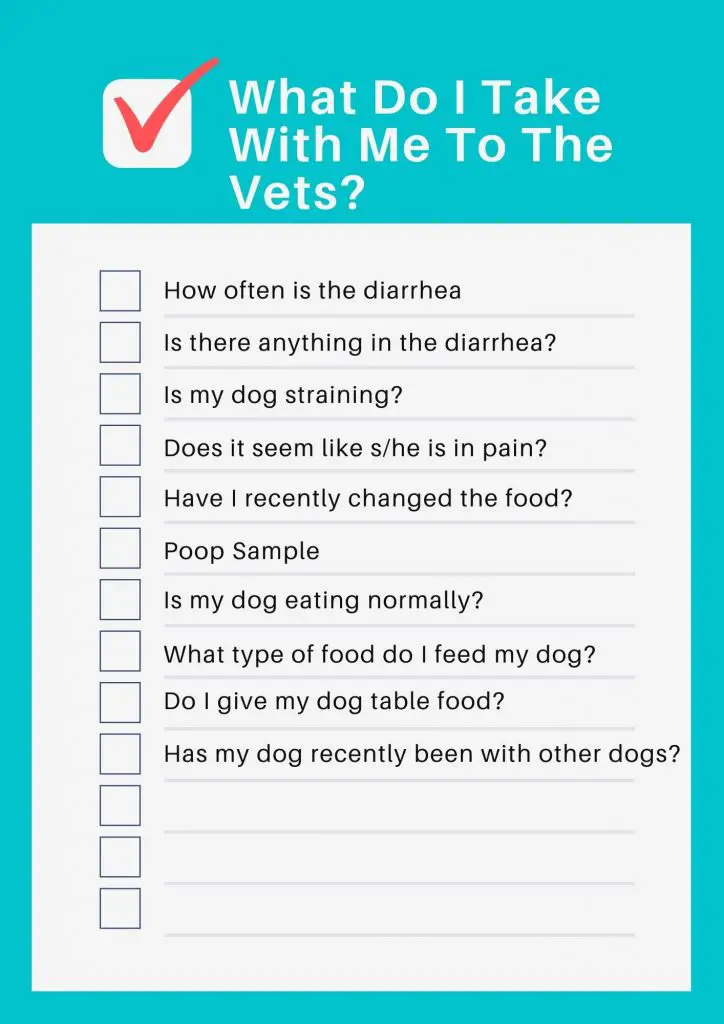
How do I cure my dog’s colitis?
While most colitis cases relapse over time and never really go away there are things you and your vet can do to keep episodes at bay.
1. Treat any infectious diseases
If the tests that your vet runs show an infection that should be treated first
2. Dietary Trial
Usually, your vet will want to start the least invasive method of care which begins with changing your dog’s diet or doing a food trial. The diet should be a blander, more gut-friendly diet, so this may mean spending a little bit more money as oftentimes vets will prescribe a prescription diet such as Royal Canin gastrointestinal diet.
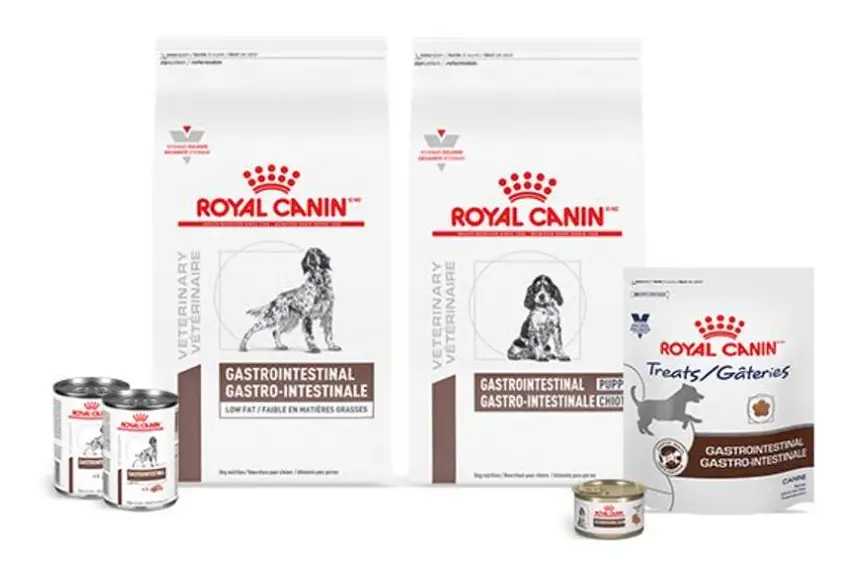
3. Immunosuppressive Treatments
If the first two steps of treating any existing infections and changing the diet don’t work then your doc will prescribe immunosuppressive or anti-inflammatory drugs such as NSAIDs or steroids such as Budesonide or cyclosporine may be given. Many vets notice a quicker improvement when anti-inflammatories are given with a change in diet.
4. Fiber
Increasing your dog’s fiber may help improve your dog’s diarrhea. Some pet parents find that giving their dogs a small amount of pumpkin or Metamucil (Psyllium mucilloid) with their meals helps tremendously. Speak with your vet about a dose for your pup’s exact weight, but in general, you can give up to 1/2 a teaspoon per five pounds of body weight. In many cases, this is a short-term addition and the amount given can be tapered off until you are no longer including it in your dog’s diet. Some owners swear by slippery elm, which is high in fiber as well.
5. Probiotics
Speak with your vet about giving a probiotic as well to help build up your dog’s gut flora, while there needs to be a lot more research around probiotics and colitis it most likely won’t cause any harm.
6. Turmeric
Some holistic vets will add turmeric to your dog’s treatment as it has been shown to help suppress IBD colitis and decrease the rate of reoccurrence in humans. (Source)
7. Metronidazole
Some vets will have had great results with adding regular metronidazole to the diet as it is antiprotozoal and antimicrobial. It is usually used in combination with other methods mentioned above
8. Tylosin
As an alternative, tylosin can be used in place of metronidazole although it is used less often
9. Motility Modifiers
Motility modifiers like loperamide may be given to help stop diarrhea. The dose is usually (0.1-0.2mg/kg, 2-4 times per day)
10. FMT
Some vets have had luck with fecal microbiota transplantation or FMT in dogs that have chronic colitis. Although not routinely done the results are promising. You can read about a study here.
11. Surgery
Surgery is usually saved as a last resort since it is by far the most invasive method of treatment
Treatment of granulomatous colitis
Granulomatous colitis in boxers and french bulldogs is often treated with antimicrobials effective against E. Coli like enrofloxacin since there has been a correlation shown between the bacteria and the disease. These dogs are reassessed fairly often, usually about every two weeks.
Which diets work best for colitis in dogs?
The goal when feeding a dog with colitis is to feed a food that is low residue, hypoallergenic, and highly digestible. So starting out with a low-fat, bland diet is always helpful. This includes giving boiled white rice or low-fat cottage cheese. For a complete guide on feeding your dog a bland diet, click here.
Novel protein diets
Novel protein diets or those that expose your dog to a new type of meat besides the common chicken or beef have been shown to be highly effective in keeping episodes at bay. The protein should be one that your dog has not been exposed to before, in the US, this would be diets that are made with lamb, venison, rabbit, or kangaroo.
Hydrolyzed diets
Hydrolyzed diets have also been shown to be effective at treating colitis. Hydrolyzed diets are diets that have their protein broken down so small that their immune systems no longer react to them
FOS containing dog foods
Fructo-oligosaccharide (FOS) is a nutritional supplement that is becoming increasingly popular in dog foods. They have a pre-biotic effect and enhance colonic microflora to help in the prevention and treatment of diseases of the colon.
Prognosis
The short-term prognosis is generally good for dogs but there are usual relapses long-term.
Unfortunately, histiocytic colitis of Boxers is usually a grave prognosis unless treated early. The immunoproliferative enteropathy of Basenjis also has a poor prognosis; most dogs die within 2 years of diagnosis, although some have been reported to live as long as 5 years. Similarly, the prognosis for the diarrheal syndrome reported in Lundehunds is also poor. (Source)
FAQ’s about colitis in dogs
- Is colitis contagious? Colitis is not contagious but you may notice symptoms in more than one of your dogs especially if they are from the same litter
- Is colitis the same thing as IBD? Colitis is a type of IBD
- Is fasting necessary? Most vets will ask that you fast your dog for at least 24 hours to give their digestive systems a chance to rest
- My dog seemed to develop colitis after she was spayed, is this possible? Since one of the causes of colitis in dogs may be stress if your dog was extremely stressed this could have contributed to a bout of acute colitis
- Can I treat colitis naturally? Often times dogs do well with food changes so changing to a quality diet and adding things like fiber (a lot of owners like slippery elm), pre-and pro biotics may help tremendously
- How long can a dog live with colitis? Every dog is different, so there is not set life-expectancy although in severe cases most dogs will usually live between 2-5 years after a diagnosis
- Can a dog have constipaton with colitis? One of the main signs that a dog has colitis is diarrhea so they probably won’t present with constipation, however some owner may think their dog has constipation becasue they seem to strain when defecating
- Is colitis fatal in dogs? While many times dogs can live for years after a diagnosis, it can prove to shorten their lifespan in some cases
- Is colitis treatable? As stated above, most cases are incurable and your dog will have recurring episodes throughout their lifespan
- Is colitis hereditary? Since researchers have not pinpointed an official cause of colitis in dogs but there does seem to be a hereditary link
- Is colitis painful to dogs? In some cases colitis can cause severe pain, so it is important to keep your dog very comfortable during this time
Key Takeaways About Dogs and Colitis
- Colitis is a common form of IBD in dogs that presents with persistent diarrhea
- Dietary modification is necessary in most cases of treatment, start with a bland diet
- Dogs that do not respond to dietary changes may be placed on medication or require surgery as a last resort
- The short-term prognosis is usually good although many dogs do relapse over time
Have a friend that has a dog with colitis? Share this article with them!

Reference





















































































































